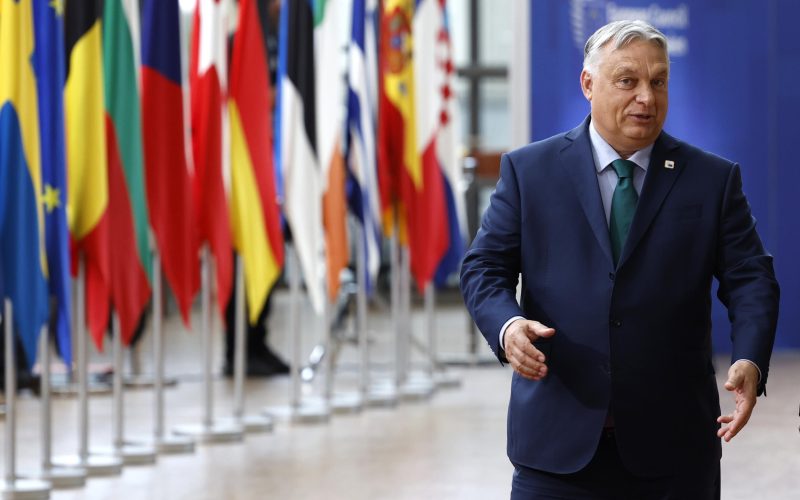Hungary’s political landscape has shifted dramatically with the recent election of its Eurosceptic government to the presidency of the European Union (EU) Council. This development has significant implications for the EU’s future policies, international relations, and internal cohesion. This article explores the context, implications, and potential outcomes of this political transition, highlighting key issues through analysis and comparative tables.
Context and Background
Hungary’s Eurosceptic Stance
Hungary, under the leadership of Prime Minister Viktor Orbán and his Fidesz party, has adopted a notably Eurosceptic stance. This position is characterized by a critical view of the EU’s influence over national sovereignty, skepticism towards EU-wide regulations, and resistance to certain EU policies, particularly those related to migration, judicial independence, and economic governance.
The Role of the EU Council Presidency
The EU Council Presidency rotates among member states every six months, with the presiding country chairing meetings, setting agendas, and representing the EU in external affairs. This role, while not possessing legislative authority, is influential in shaping the EU’s policy direction and managing negotiations among member states.
Analysis of Hungary’s Presidency
Policy Implications
1. Migration Policy: Hungary’s presidency may steer EU migration policy towards stricter controls and stronger national borders, reflecting Orbán’s anti-migration stance. This could lead to tensions with other member states advocating for more inclusive policies.
2. Rule of Law and Democratic Values: Hungary’s approach to judicial reforms and media freedom could face increased scrutiny from other EU countries concerned about democratic backsliding. The presidency might influence discussions on upholding democratic standards within the EU.
3. Economic Policy and Recovery: The presidency could prioritize national interests over EU-wide economic strategies, potentially affecting collective responses to economic challenges such as inflation and unemployment.
Potential Conflicts
1. Internal EU Cohesion: Hungary’s presidency could exacerbate existing divides within the EU, particularly between member states with differing views on key issues such as migration and rule of law. This could lead to more pronounced political and diplomatic friction.
2. Relations with Non-EU Countries: Hungary’s stance might affect the EU’s foreign policy, particularly in relations with countries outside the bloc. For instance, its approach to China and Russia could influence EU strategy in these regions.
Comparative Table: EU Council Presidency under Different Governments
| Aspect | Hungary (Eurosceptic Government) | Germany (Pro-EU Government) | France (Balanced Government) |
|---|---|---|---|
| Migration Policy | Stricter controls, national focus | Inclusive, collective approach | Balanced, pragmatic stance |
| Rule of Law | Potentially controversial reforms | Strong emphasis on rule of law | Focused on both integration and standards |
| Economic Strategy | National interests prioritized | Strong focus on EU-wide recovery | Balancing national and EU-wide goals |
| Foreign Relations | Nationalistic, potential friction | Collaborative, strong EU stance | Strategic, considering EU and national interests |
Analysis Table: Impact of Hungary’s Presidency on Key EU Areas
| Area | Impact of Hungary’s Presidency | Expected Challenges |
|---|---|---|
| Migration Policy | Likely shift towards restrictive measures, influencing overall EU policy | Possible clashes with member states advocating for more open policies |
| Rule of Law | Increased scrutiny of Hungary’s own judicial reforms and possible friction with EU standards | Potential for greater internal EU divisions and legal disputes |
| Economic Policy | Focus on national priorities, potentially impacting collective economic strategies | Risk of weakened collective response to economic issues |
| Foreign Relations | Shift towards Hungary’s national stance on global issues, impacting EU’s unified foreign policy | Possible diplomatic tensions with non-EU countries and within the EU |
Strategic Considerations for the EU
Navigating Internal Divisions
The EU must carefully navigate the potential divisions that Hungary’s presidency may exacerbate. Ensuring effective communication and compromise among member states will be crucial in maintaining internal cohesion and advancing collective goals.
Balancing National and EU Interests
While Hungary will likely prioritize national interests, the EU needs to find a balance that upholds its collective values and objectives. This may involve negotiating terms that align with Hungary’s stance while safeguarding broader EU principles.
Strengthening External Relations
The EU should focus on maintaining a unified stance in its external relations, despite potential shifts due to Hungary’s presidency. Coordinated strategies and clear communication will be essential to preserving the bloc’s international credibility and influence.
Conclusion
Hungary’s Eurosceptic government taking over the EU Council Presidency represents a pivotal moment for the bloc. The transition is likely to influence migration policies, economic strategies, and internal cohesion, posing both challenges and opportunities for the EU. By addressing potential conflicts and balancing national and collective interests, the EU can navigate this transition effectively and uphold its values and objectives on the global stage.











